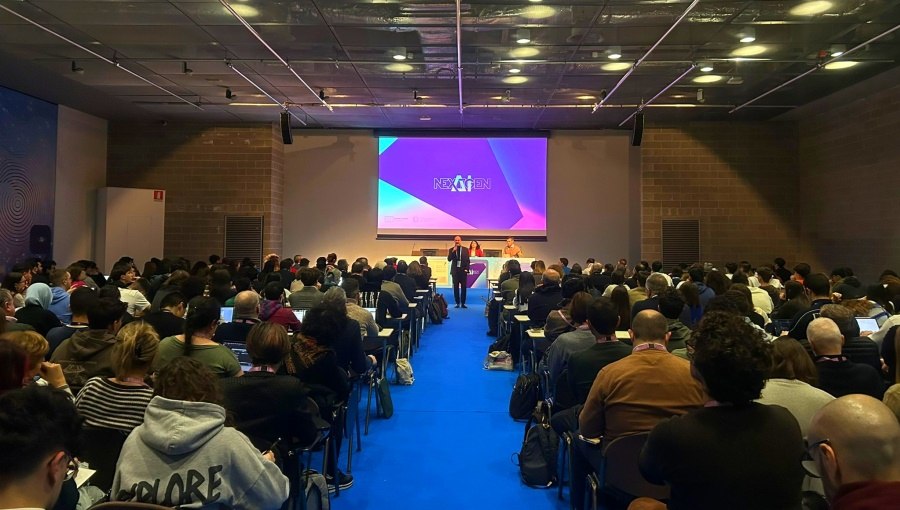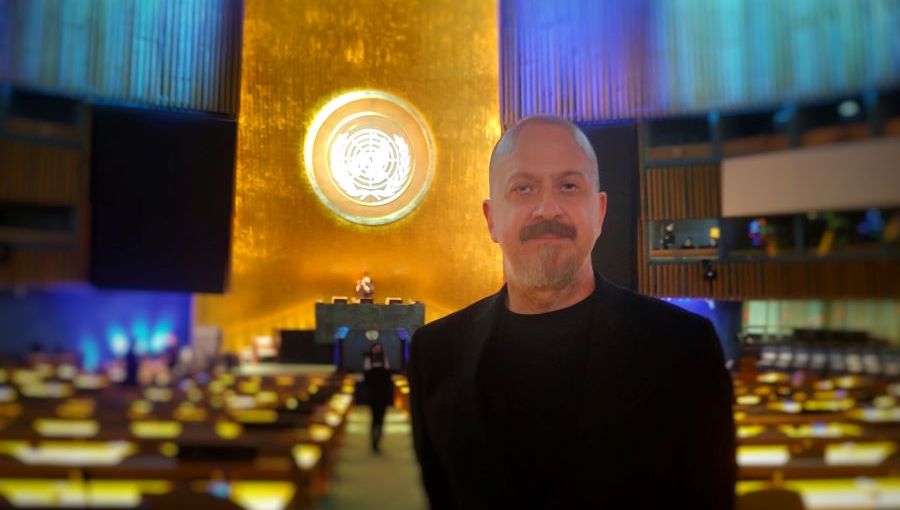John Cabot University Presents "The Future of Jobs"

Future of Jobs – “Artificial Intelligence & AI & Machine Learning” by mikemacmarketing is licensed under CC BY 2.0
On September 24, JCU students had an opportunity to participate in a workshop entitled “The Future of Jobs Workshop,” organized by the Institute of Future and Innovation Studies, in collaboration with JCU student-run organizations, the Asian Culture Club, The Matthew, the Women’s Leadership Initiative, the Africans in the World Cultural Club, and the Grassroots Environmental Club. The speakers were Francesco Lapenta, Director of the Institute, and JCU Professors Alina Sorgner, Ieva Jakobsone Bellomi, and Stefano Gazziano. The workshop’s aim was to explore how students can predict and prepare themselves for future changes in the job market.
Francesco Lapenta began by stating that historically, the three industrial revolutions had a predictable impact on the social structure and job market. Recently, not only did we just witness the impact of the Covid-19 pandemic on the global economy, but we also found ourselves on the edge of a momentous technological revolution that will have profound effects on the job and work market environments. But according to Lapenta, being on the verge of the fourth industrial revolution is more of an opportunity than a cause for anxiety.
Lapenta pointed out that the crucial change between previous industrial revolutions and the one we are facing today is that the function of the university has changed. “University is no longer about gaining knowledge,” he said, “because knowledge is generally accessible.” Instead, “university provides students with a skillset, a method of how to plan, organize, and achieve a certain goal.” The process of learning does not finish with one’s graduation.” Employees of the future will have to prepare for the constant renegotiation of skills,” highlighted Lapenta. He also pointed out that “scenario analysis” is a crucial tool to control one’s career. For example, one can predict future developments of a specific technology or career by looking at the trajectory of its evolution and analyzing the forces that shaped it. “Today,” Lapenta said, “there are people in the world who live in the past, present, and the future; while over one billion people live without electricity, a narrow group of innovators is creating the technology of tomorrow.” By continuously looking for the most advanced projects in one’s field, Lapenta added, one gets closer to living in the future.
Professor Alina Sorgner further discussed the importance of prediction for career planning. One of the eternal questions economists ask is how to think strategically about the future,” she said. She also pointed out that the world is ultimately unpredictable and outlined a strategy to make efficient short-term predictions of the job market. She suggested three major sources of information as a base for prediction-making. First, one can examine data on what jobs are in demand. For example, the US government publishes statistics and predictions on growing job markets. Unfortunately, the statistics are only updated once every 10 years. Second, one can consider experts’ opinions as sources of information. However, experts’ scope of inquiry and prediction is very narrow. Third, one can survey job postings online. Professor Sorgner added that some of the most wanted job sectors after the pandemic are logistics, remote economy, and artificial intelligence (A.I.).
Professor Jakobsone Bellomi pointed out that we live in a VUCA world, a world of Volatility, Uncertainty, Complexity, and Ambiguity. Referring to Kai Fu Lee’s “A.I. 2041” (Ebury Publishing, 2021), Professor Jakobsone Bellomi explained that students should focus on developing skill sets and mindsets that can compete with A.I., such as common sense, emotional intelligence, critical thinking, and creativity. These skills were also listed in The World Economic Forum’s report on the 15 most useful skills to have in the next 10 years. These skills directly correspond to the concept of the future mindset, or the “growth mindset,” explained Professor Jakobsone Bellomi, referencing the work of Dr. Carol Dweck. The future mindset, she continued, “relies upon a holistic understanding of the world and on perceiving obstacles as possibilities for growth.” This future mindset, which students should develop, relies heavily on soft skills, such as teamwork and interpersonal communication. Students should embrace adaptability in their professional development, understood as being able to adapt to all types of changes. What’s most important, advised Professor Jakobsone Bellomi, is “to focus on the self and find one’s own purpose.”
Professor Stefano Gazziano presented his experience as Senior Expert at ENEA (The Italian National Agency for New Technologies, Energy and Sustainable Economic Development). He explained that the pandemic has brought numerous challenges for the agency and discussed how the sudden need to replace in-person contact with network presence raised problems on both relational and formal levels. A way to replace and formally authorize a signature within the organization with over three thousand people had to be quickly developed. The pandemic also required an adaptation to new ways of dealing with interpersonal relations, such as including audio and video files in reports to achieve better communication clarity. Professor Gazziano also emphasized that what we are witnessing now is the beginning of the technological revolution. He concluded by stating that “A.I. development and computer science in 2021 is comparable to electricity in 1920.” He advised students to be prepared for a lot of change but also to find their goal and focus on technological innovations once the goal is clear.
The pandemic accelerated the changes related to A.I. and automation, said Lapenta, adding that the transformations in A.I. will alter various job sectors. As a brainstorming session, speakers and participating students discussed two case studies of how A.I. could influence a particular job sector (art journalism and sustainable agriculture). The discussion showed that rather than replacing entire fields, A.I. is most likely to replace specific tasks. The question one should ask is what skills cannot be replaced by A.I. Students should continue to learn and develop, earning certificates on micro-skills, added Professor Sorgner. They should also take into consideration that they will change their jobs many times and they should plan for unemployment. Lapenta suggested that one should view the employer as a client and oneself as a company, thus see oneself as a product in continuous-making.
“You are now in a unique position to act,” said Lapenta, adding that the fundamental takeaway from the workshop is for the students to feel provoked to think differently about the decision-making process, one’s understanding of oneself, and the need for long-term career planning. Lapenta concluded that “like the weather forecast, prediction is not 100% accurate, but it allows one to sense what the climate is at the forefront, and in which direction the change is heading.”





